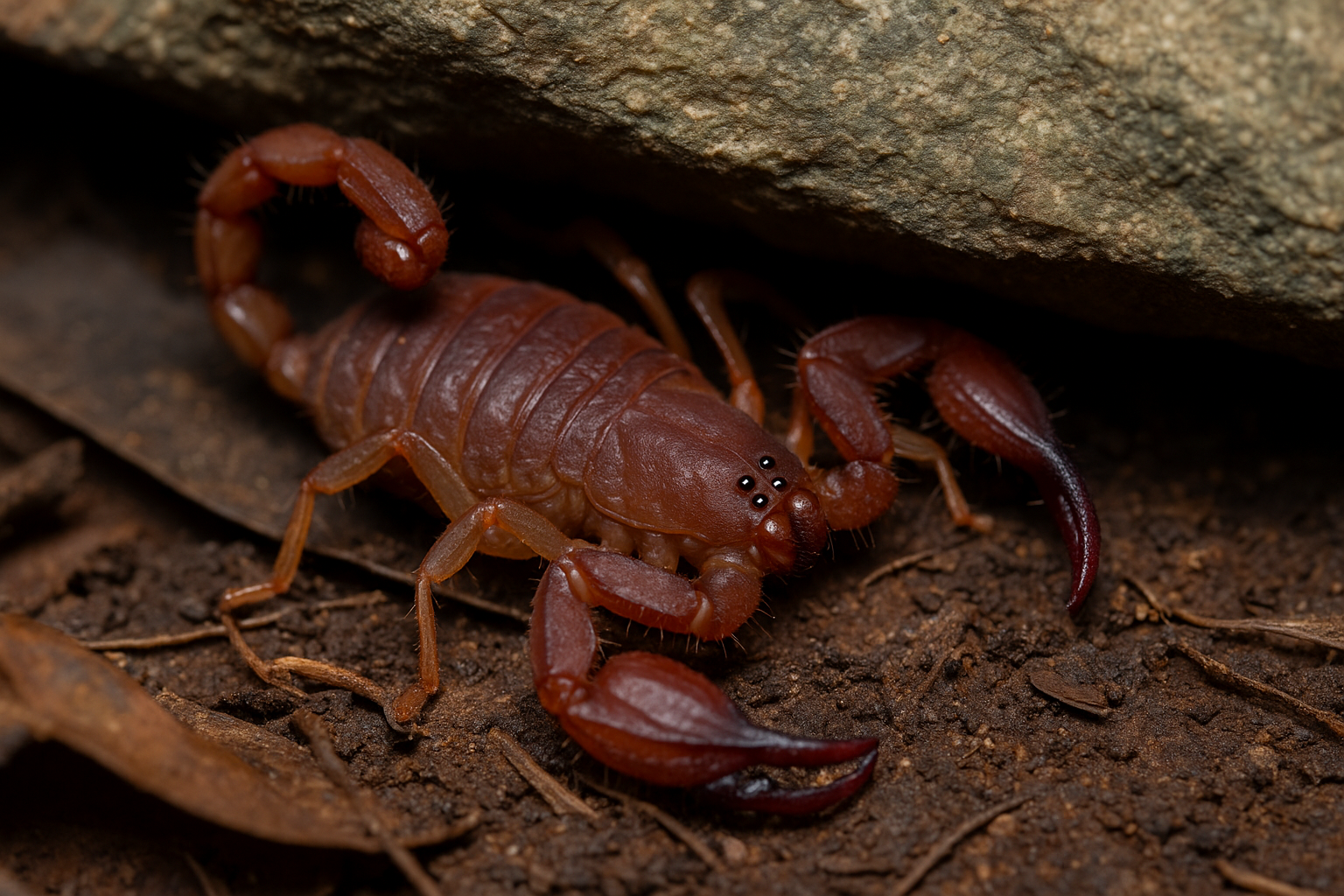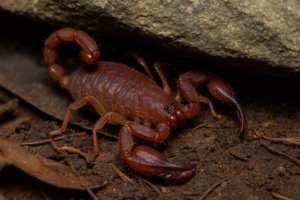It was a quiet night in Thailand’s Kaeng Krachan National Park, until researchers found something that made them pause—an inch-long scorpion, eyes gleaming back at them. Meet Scorpiops krachan, a tiny yet fierce predator that’s rewriting what we know about arachnid survival.
Discovered and formally described on March 6, 2024, by zoologist Wasin Nawanetiwong and colleagues, this minute hunter measures a mere 0.85 to 1.06 inches from head to tail—making it one of the smallest in its subgenus. Hua Hin Today+9Earth.com+9Hindustan Times+9Zookeys+3Zookeys+3Wikipedia+3
Fascination point — détails captivants
Size matters when you’re the smallest: Males top just over an inch, with females darker-toned, chocolate-hued. Earth.com
Eyes like no other: Eight bright eyes—an arachnid record—may help it judge depth with pinpoint accuracy. Earth.com+1
Built to hunt: Its slender, lightning-quick pincers and sensory hairs (trichobothria) let it ambush prey in pitch darkness—and even grab creatures larger than itself. Miami Herald+3Earth.com+3Earth.com+3
Scene setter — habitat pittoresque
Kaeng Krachan, part of a UNESCO World Heritage Forest Complex (est. 2021), is home to nearly 460 animal species—including 48 endemics and 81 rare ones. Zookeys+7Earth.com+7Earth.com+7
Our scorpion was found in the transitional rainforest—where old-growth meets regrowth—snuggled under a rock by a seasonal stream. Nights hover in the 70s°F, perfect for nocturnal hunters. Earth.com+1
Survival strategy & venom myth
Patience is key: Scorpiops krachan is a master ambush predator, staying motionless until vibrations signal a hapless bug. Zookeys+7Earth.com+7Wikipedia+7
Venom calibrated to size: While its pinch may settle prey fast, preliminary insights suggest its venom may not be dangerous to humans—though tests are still pending. Earth.com
Why this matters — broader context
A drop in the scorpion sea: This discovery brings Thailand’s Euscorpiops count to 13 and the global Scorpiops tally past 115. Wikipedia+9Earth.com+9PMC+9
Family tree mysteries: Mitochondrial DNA work (cytochrome c oxidase I) is underway to trace its evolutionary branches among 200+ Asian counterparts.
Implications: Tiny creatures like this highlight how much of Earth’s biodiversity remains underfoot—hidden in plain sight.
Engaging wrap-up + Call-to-Action (CTA)
From under a single rock, scientists gained insight into biology, evolution, and survival at Earth’s smallest scales. Who knows what other marvels await discovery in planet’s shadows?
Did that blow your mind? Drop a comment with your favorite critter, share this article, or explore more from EarthSnap’s wildlife vault.
For More Article Here








